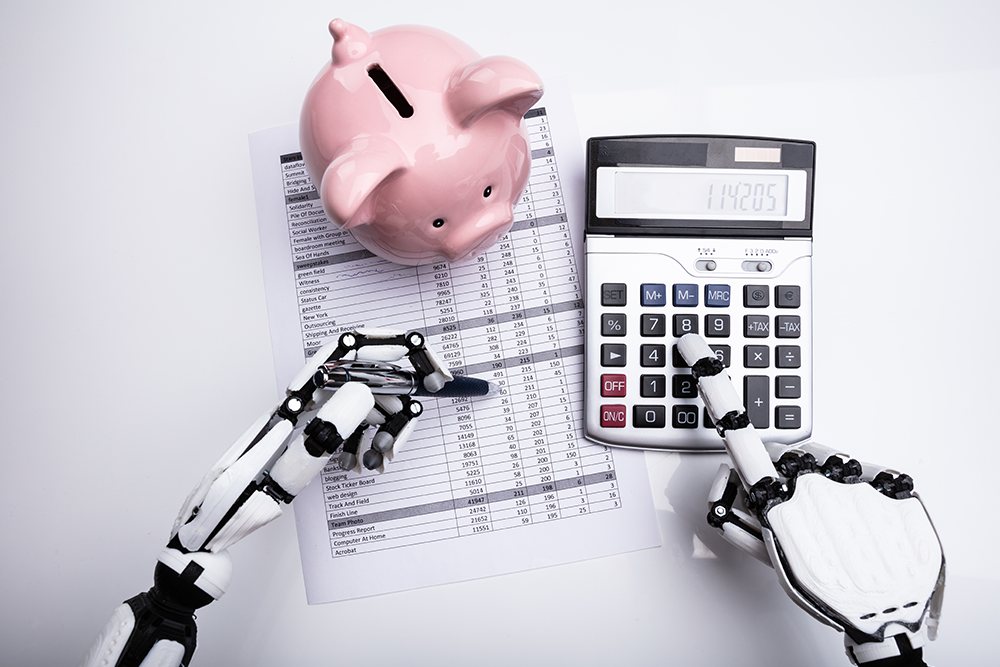The Role of Artificial Intelligence in Transforming Accounting
Artificial Intelligence (AI) isn't just a popular term anymore; it's a major force reshaping the accounting field. The adoption of AI in accounting is gaining momentum and promises to revolutionize how tax and accounting professionals operate. The real question is, is your firm ready for this transformation?
Recent surveys and studies show that the accounting profession is recognizing the potential of AI in improving efficiency and client services. According to CPA.com and AICPA PCPS CAS Benchmark Survey, 24 percent of top-performing CAS practices are actively harnessing AI. Additionally, the "2022 VSCPA Future of Work Survey" identified AI as one of the top five technologies that respondents plan to incorporate in 2023.
The Current State of AI in Accounting
AI has been used in accounting for some time, but recent advancements are causing significant changes in its applications. Before exploring these shifts, let's first understand how AI is presently utilized in accounting.
AI's standout feature is its ability to identify patterns within vast datasets, a task beyond human capabilities. This makes AI exceptionally valuable in audits. Auditors can employ AI to analyze extensive datasets, quickly spotting anomalies and patterns. This shift allows auditors to move away from traditional sampling methods and conduct real-time examinations of all client transactions. This results in improved audit quality, as auditors can better detect risky transactions, providing clients with higher-quality audits.
AI also plays a significant role in tax research. The sheer volume of information from various sources can make tax research challenging and prone to errors. To address this, Thomson Reuters has developed Checkpoint Edge®, an AI-powered tax and accounting research platform. It utilizes advanced algorithms and extensive curated data sources to offer accountants swift, accurate answers to natural language queries. Another emerging area is e-invoice automation, which involves extracting key invoice data to streamline invoice processing.
Will AI Replace CPAs?
A common concern is whether AI will replace Certified Public Accountants (CPAs). The short answer is no; AI is not intended to replace humans in the profession. Instead, it enhances workflows and boosts efficiency.
However, certain roles may evolve or become obsolete, particularly for those who do not adapt or integrate AI into their work. The focus should shift towards higher-value tasks, leaving repetitive duties to AI. AI will complement the skills of professionals rather than fully replace them, opening up new possibilities and roles.
It's crucial to understand that there are many skills AI cannot replicate, such as building and nurturing client relationships.
The Changing Landscape of AI in Accounting
In recent months, generative AI has emerged as a significant development in the AI landscape. Generative AI excels at creating content from scratch, including text, music, images, or video. ChatGPT, developed by OpenAI, gained widespread attention in November 2022, attracting millions of users within days.
Industry experts stress the importance of accountants adapting to these changes. As AI technology advances, it offers opportunities to optimize tasks, enhance productivity, and provide more efficient services. "At Quantum, we are continuously educating our team, exploring the potential of AI, and staying updated on the latest advancements to improve our services," said Hector Perez, CEO of outsourced finance and accounting company, Quantum FBI. "It's imperative for others in the industry to embark on this journey as well."
AI is already making a significant impact on the tax and accounting sector, with AI-powered solutions providing automated processes, real-time insights, and personalized guidance. CPAs who embrace AI technologies will be better equipped to offer superior services to their clients while staying competitive in the evolving marketplace. Staying informed about AI developments, investing in training, and cultivating expert relationships are vital steps for CPAs to prepare for the future of AI in tax and accounting. As the accounting profession evolves, AI will continue to unlock new doors for innovation and efficiency.

